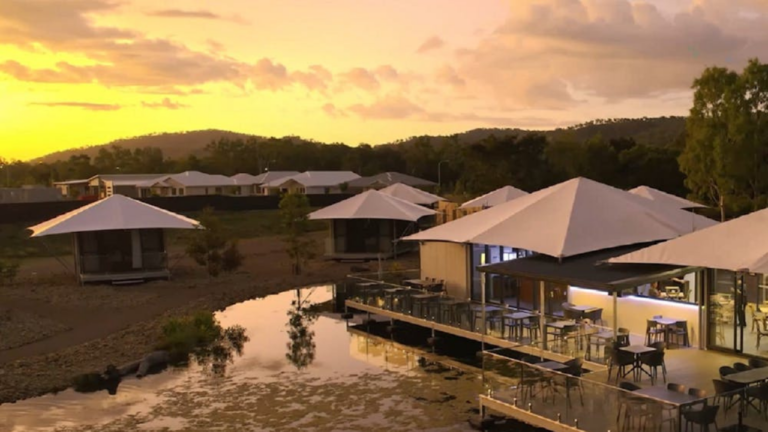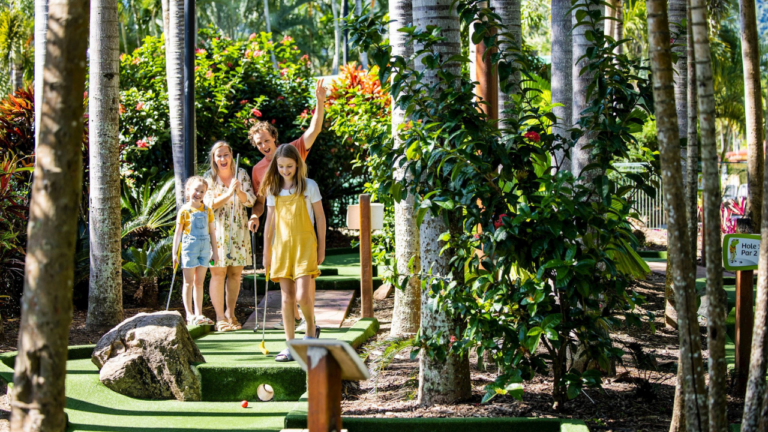Australians love caravanning and camping. It is affordable, family-friendly and often a convenient and relaxing way to experience the unique and stunning natural environments of Australia.
It’s no surprise it’s one of our favourite holiday types, in 2022 Australians spent more than 60.9 million nights on caravan and camping trips.
Caravan and holiday parks are frequently the gateway to our regions and nature-based tourism operators, and Caravan Industry Association of Australia (CIAA) are on a mission to make the sector more sustainable by partnering with Ecotourism Australia to provide a sustainable tourism pathway for their members.
Chief Executive Officer of CIAA, Stuart Lamont says “This partnership is key to support the industry sector. Caravanning and camping have immense potential to be part of the growing responsible travel movement in Australia and lead regional small to medium-sized business toward innovative sustainability.”
While, implementing sustainable practices can be challenging, the reward is well worth the time and effort. By making efforts to improve your sustainability, you can strengthen your business’ resilience in times of crisis, create a more positive image of your business and meet the growing demand for sustainable tourism accommodation and experiences.
Reports show that visitors want sustainable options now more than ever; one Expedia report even found that three in five travellers chose environmentally friendly lodging in recent years. Sustainability is no longer a ‘nice to have’ and indeed it is now a ‘must have’ for all tourism businesses. It just makes good business sense.
We asked some ECO Certified caravan parks to share why sustainability is important to them and how it has helped their business to thrive. Here’s what they said:
Townsville Eco Resort
Having owned the park since 2014, Martin and Fiona Lidgett saw the value of implementing sustainable practices early on and the park is now a leader in sustainable tourism. Implementing numerous initiatives across areas of water, waste and energy have led to direct cost savings for the business:
Water reduction and re-use policies has resulted in no toilet taxes and reduced development infrastructure costs.
Installation of 19.8 kw of solar in 2018 has saved them up to $4k a month in electricity bills.
Their innovative introduction of white roofs across all their built infrastructure helps cool the park and reduce their energy usage.
Incredibly, they’ve seen an increase in wildlife that inhabits the park, creating unforgettable experiences for their guests as a result of their environmental initiatives.
Increased collaboration with Caravanning Queensland, their regional tourism organisation, Townsville Enterprise, and the Townsville City Council has enabled them to build their industry network and get involved with local initiatives. They have also achieved Advanced Ecotourism Certification with Ecotourism Australia and waste and energy stars from CCIQ Ecobiz in recognition of their sustainability efforts.
Fiona says all of these initiatives have enabled them to obtain dramatic financial savings and greater resilience during weather events to remain operational.
Fiona’s top tip: You don’t have to be perfect from the beginning. Start small and build on that over time.
Big 4 Adventure Whitsunday Resort
Based within the Great Barrier Reef region, Big 4 Adventure Whitsunday Resort owner Greg McKinnon understands the importance of protecting the area’s ecosystems. Their sustainability messaging flows through the entire business, and they’ve found customers notice this.
Greg’s first piece of advice for businesses new to sustainability is to develop an Environmental Management Plan (EMP). This helped their business identify and measure sustainable activities, inform their core messaging and business strategies, and achieve buy-in from staff.
His second piece of advice is to look at all your business activities and developments with a lens of sustainability. There are so many options which meet both financial and environmental requirements if you do the research. For example, in December 2022, the resort switched from individual cabin bathroom amenities to refillable pump stations, diverting 19,536 single use plastic containers from landfill – a significant financial and environmental saving.
Finally, making a positive impact can be innovative and fun! They’ve introduced food scrap buckets in their kitchens, so guests can feed the furry friends at the resort’s Animal Park. This simple action has the dual benefit of reducing food waste and creating a positive guest experience.
Advancing and promoting their sustainability measures and ECO Certification has helped to attract visitors to the resort and appropriate messaging helps guests make a positive impact.
Greg’s top tip: Personalise your activities to your region and business, there’s no one way to do sustainability and your approach may be different to others.
Are you a member of the Caravan Industry Association of Australia and want to start your sustainability journey? Ecotourism Australia can help you get started with the Strive 4 Sustainability Scorecard and our range of Certifications. CIAA members that start their journey with the Strive 4 Sustainability Scorecard before progressing to Certification are eligible for an exclusive Certification discount. Contact us today for more information.
Interested to learn more about sustainable tourism and what it means for your business? Join us at the Global Sustainable Tourism Summit in Brisbane on 4-6 June.
References: Caravan Industry Association of Australia

